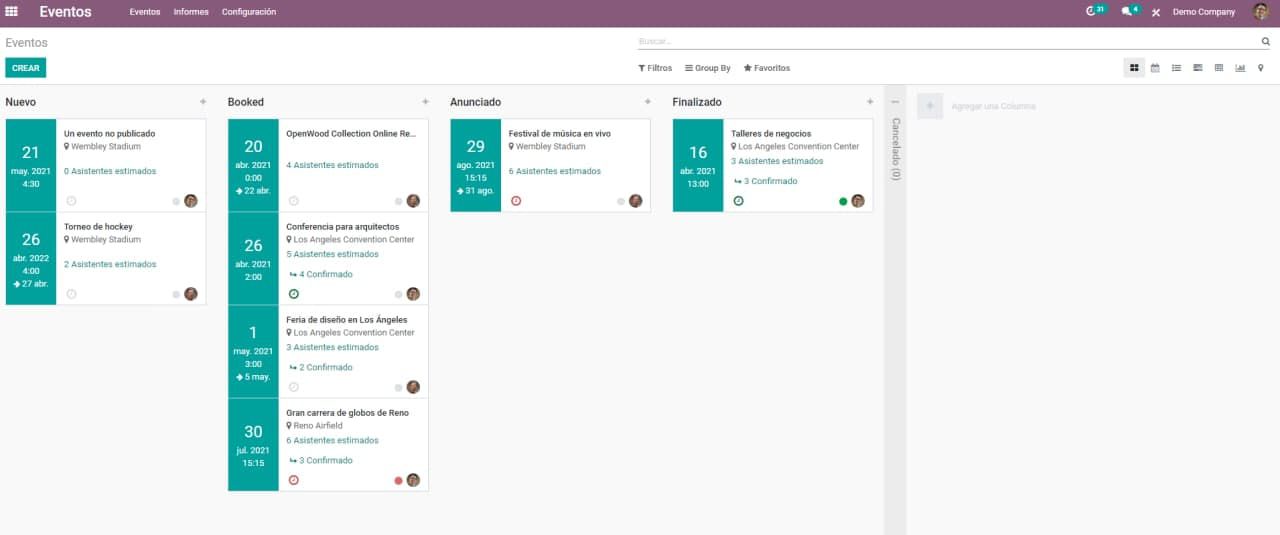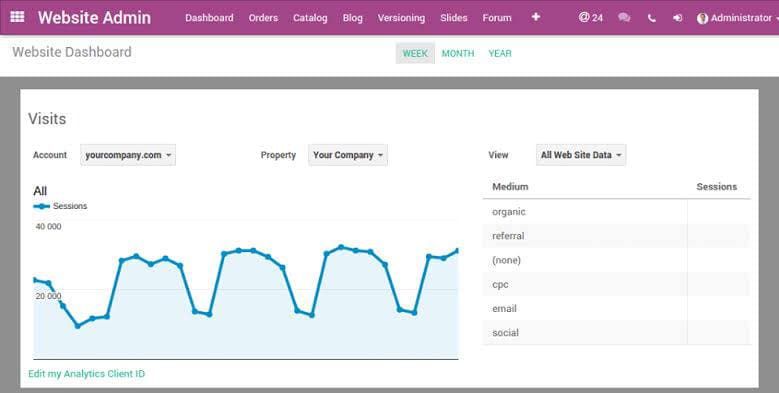Virtual events are an excellent option when you want to gather numerous people in the same place, especially when there are limitations due to schedules, distances or extraordinary situations such as a pandemic. Throughout this blog post we will tell you what types of virtual events exist, how to carry out their planning, and we recommend a tool to make your virtual event a success.
The creation of a business event is closely linked to the public relationships area, it is beneficial for a company to generate events that, in addition to having specific objectives of attracting prospects or retaining customers, generates brand visibility.
In these times the creation of face-to-face events has had to stop and the great alternative has been to generate online events, which can be of great benefit if you take advantage of them. Today we have a number of options that can make the organization of these events very fast and accessible compared to a few years ago, let us explain why:
An event is any previously organized activity that gathers a capacity of people in a place and time, the capacity of the events seeks to develop, learn or socialize through common purposes. When we talk about digital events we mean the same thing, it is any activity that requires organization, but its physical space was transferred to a digital space, these events are carried out with digital planning tools through the internet and have the same objective as the physical events: developing new skills, learning about specific topics, networking, among others.
What types of events can I generate?
Companies can generate different types of events in the digital world to create valuable content for their community, we list some:

Workshops: These will always be related to an educational program and is aimed at a specific group, they are focused on developing skills on a specific topic of the participants.
Master class: These are classes taught by experts in a specific subject and the success of the event will depend on the experience and knowledge that the expert has about the sector or the subject of which he will be teaching, since all the participants of the event will be attracted by the speaker reputation.
Webinars: They offer a demonstration of a product or service and allow the user to interact within the event, communicate with the speaker and give feedback within the event itself.
Online courses: These events have a much longer duration and can be divided into many mini events, these courses will always have a study plan behind them, a plus in online courses is that you offer certifications or diplomas with curricular value.
Events development
To carry out a successful event you must carry out prior planning, an order in the development of the event and a subsequent follow-up, ensuring each step of the same:
Planning should always be accompanied by the following topics:
Before the event
Objective of the event: Be very clear about the reason why you are generating that event and what you are looking to attract.
Generate a title and description of the event in order to attract the right audience.
Generate a protocol of the event and the steps that the development will have (what will be done at the beginning, what will be done after that, what you are going to show, what you are not going to show) as in a face-to-face event.
Define a date and time for the event.
Set up the event planning with a registration platform to be able to obtain a database of your participants.
Generate a plan to attract people to the event.
In the development
Show a strong visual identity of the event you will show.
Select a web platform from which you have control to broadcast your event.
Be clear about the mission parameters of your event.
You have to be aware of the interaction with the public to be able to generate feedback.Event tracking
Event tracking
Collect all the information you had about your event, all the interaction, the feedback from the participants.
You will need to follow up with the participants, communicate with the participants either to receive feedback from that party or to convert the participants into prospects.
To make an analysis of this event, you must use the metrics obtained from your social media strategy for your event and the metrics obtained during your event (Duration of the event, participants who stayed in the event from start to finish, how many people were connected, the feedback you received from the event)
Advantages of virtual events
Holding an event always brings benefits linked to the identity of your brand so that you are recognized. Depending on the planning, logistics and organization of the event can bring more benefits.
A much larger number of stakeholders can be reached, including international participation, since attendees will only need to be connected to the internet.
It allows you to invite any speaker reducing travel expenses, opening the options of topics for your presentations, you can search for any specialist of any topic and level making the event more profitable.
It allows you to obtain a much more specific database of the participants, you will also be able to learn more about them thanks to the participation they generate during the event.

How do I announce my event?
The medium you use to publicize your event will depend on the type of event it is and the objectives, being virtual you can use digital tools such as social networks, although it will always be important to have a website or a landing page where you can generate a registration of the participants, and obtain the data of your clients.
As we mentioned earlier, doing online events provides many benefits to your company, however it is necessary that you rely on a tool to be able to cover all the processes before, during and after the event.
One of them is the Odoo events module, in it, you can configure the planning of your events, from the organization, registrations, website of your event, emails, database of your participants and reminders before and after your event.
Why use Odoo as a tool?

The most important reason why companies should use Odoo Events as an event planning and execution tool is because it is fully integrated with the other Odoo Apps: email marketing, website, survey, social marketing, to name a few of the most important.
However, there are many more reasons to choose the Odoo Events module as an option, since it allows you to easily coordinate the content of your event as well as the possibility of having a management platform capable of managing both physical and digital events of any type and scale. Here you can develop the entire organization of your event, the sale of tickets, its visibility and promotion.
In the events module you can manage the event registration, online ticket sales as well as the database of your attendees from the platform, one of the extra benefits that Odoo Events offers you is that you can segment your audience and take advantage of social networks and email marketing to promote your events to the right audience.


The Odoo Events module allows you to integrate Google Analytics to track your events and the CTAs (call to action) that you have published on the website of your event. Finally, Odoo Events has SEO tools available. They will allow you to place keywords and suggest the most searched terms in google, as well as carefully structure your content through a CMS with templates that adapt to your brand.
Virtual events are capable of generating a great impact on your brand, attracting potential clients and developing networking, a good event requires planning in all its stages and constant monitoring to achieve the greatest possible success. Managing the event with a system that allows all the stages to be brought together in one place guarantees its efficiency and success.